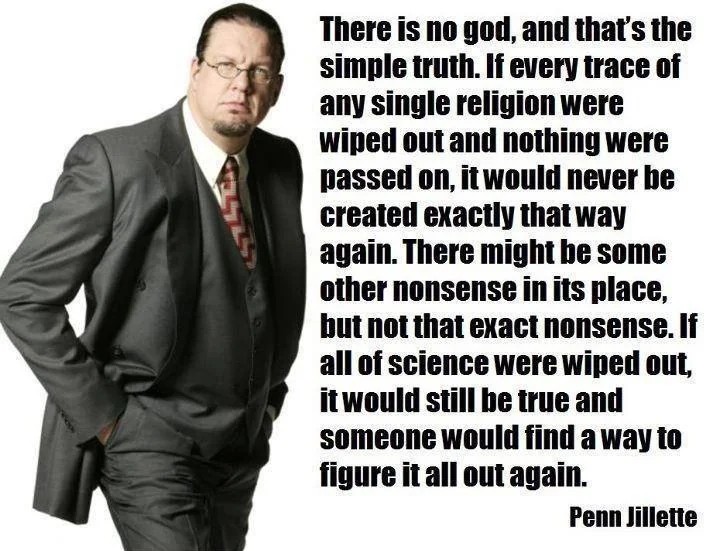this post was submitted on 30 Mar 2024
705 points (96.8% liked)
Atheist Memes
5578 readers
5 users here now
About
A community for the most based memes from atheists, agnostics, antitheists, and skeptics.
Rules
-
No Pro-Religious or Anti-Atheist Content.
-
No Unrelated Content. All posts must be memes related to the topic of atheism and/or religion.
-
No bigotry.
-
Attack ideas not people.
-
Spammers and trolls will be instantly banned no exceptions.
-
No False Reporting
-
NSFW posts must be marked as such.
Resources
International Suicide Hotlines
Non Religious Organizations
Freedom From Religion Foundation
Ex-theist Communities
Other Similar Communities
!religiouscringe@midwest.social
founded 1 year ago
MODERATORS
you are viewing a single comment's thread
view the rest of the comments
view the rest of the comments

"There are no unicorns, that's the simple truth."
Is this also over confidence?
There are a lot of children who believe in unicorns.
A lot of pictures too. The pictures are more consistent than that of the gods.
As I understand it, a statement like that is unscientific. You can say that the likelihood of unicorns existing is extremely small, trace possible mythological origins to show the stories are fabricated, but you can't categorically prove that something doesn't exist.
Are you saying that a proof that God doesn’t exist, can’t itself exist?
..Yes?
So therefore you can categorically prove that something doesn't exist?
Let me change my answer to "...most probably?"
To be fair, one is about something that would be observable, and another is an abstract concept that as defined could be completely unobservable.
Of course, there no practical consequence of that hypothetical. Since we have no evidence we can't claim to know the will of such a hypothetical being or beings. The problem with a hope or faith in such a hypothetical is really when a human asserts the authority of the divine to their own words, desires, and judgements. So if someone's faith is truly private and they don't believe they have any true insight into the nature of their faith, then no need to object since it's it has zero effect in practice.
So the agnostic perspective rather than the atheist perspective.